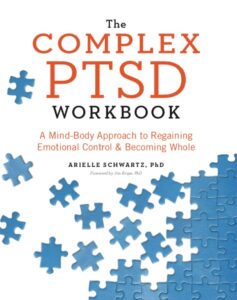What is mindfulness really? In short, it is the practice of paying attention. But, we tend to “jump ship” from the present moment when we feel uncomfortable emotionally. We avoid feeling our discomfort by distracting ourselves or pushing people away. We all do it, it’s human. However, the world needs us to show up, now.
The world is calling for authentic presence and requires that we be with emotions in healthy ways. Unsupported grief can result in feeling isolated from our community. Ignored fear and rage can turn into violence that kills. Cultivating mindfulness is about broadening our capacity to be with ourselves and others even when we feel uncomfortable.
“There are common myths and misconceptions that mindfulness is a religion, or about fixing ourselves, or about seeking enlightenment. However, mindfulness is really about showing up in the world to be with life as it is. Anything in life can be used to separate us from the world or to bring us closer to each other. At any moment you have a choice about how you want to live your life.”
-Dr. Arielle Schwartz
The first time I engaged in a day of mindfulness meditation I expected that I would feel great during and afterwards. I thought, what a great opportunity to relax. Was I wrong! The very opposite happened. I felt agitated; irritated by my never-ending mental gymnastics. My body was uncomfortable; I couldn’t sit still without fidgeting. By the end of the day I felt angry and was convinced I had failed.
Embarrassed, I initially kept my experience to myself. If only someone had told me that that these feelings are normal. Because little did I know back then but I was doing it right. All of that discomfort was actually a sign that I was on the right track.
It is easy to be misled by misconceptions about mindfulness practices. Let’s take closer look by deconstructing the common mindfulness myths:
Being mindful is not about fixing ourselves or becoming more enlightened. In contrast, the foundation of mindfulness is acceptance; a practice that asks us to reflect honestly on ourselves, our choices, and our interactions. With this in mind, here are some gentle ways to increase self-awareness into your daily life, on and off of your mat:
The world is calling for our authentic presence. Anything in life can be used to separate us from the world or to bring us closer to each other. At any moment you have a choice about how you want to live your life.

Connect to this post? This was an excerpt from my book, The Complex PTSD Workbook, now available on Amazon! Click here to check it out and increase your toolbox for healing. Whether you are a client or a therapist this book will offer a guided approach to trauma recovery.
Dr. Arielle Schwartz is a licensed clinical psychologist, wife, and mother in Boulder, CO. She offers trainings for therapists, maintains a private practice, and has passions for the outdoors, yoga, and writing. Dr. Schwartz is the author of The Complex PTSD Workbook: A Mind-Body Approach to Regaining Emotional Control and Becoming Whole. She is the developer of Resilience-Informed Therapy which applies research on trauma recovery to form a strength-based, trauma treatment model that includes Eye Movement Desensitization and Reprocessing (EMDR), somatic (body-centered) psychology and time-tested relational psychotherapy. Like Dr. Arielle Schwartz on Facebook, follow her on Linkedin and sign up for email updates to stay up to date with all her posts.

Arielle Schwartz, PhD, is a psychologist, internationally sought-out teacher, yoga instructor, and leading voice in the healing of PTSD and complex trauma. She is the author of five books, including The Complex PTSD Workbook, EMDR Therapy and Somatic Psychology, and The Post Traumatic Growth Guidebook.
Dr. Schwartz is an accomplished teacher who guides therapists in the application of EMDR, somatic psychology, parts work therapy, and mindfulness-based interventions for the treatment of trauma and complex PTSD. She guides you through a personal journey of healing in her Sounds True audio program, Trauma Recovery.
She has a depth of understanding, passion, kindness, compassion, joy, and a succinct way of speaking about very complex topics. She is the founder of the Center for Resilience Informed Therapy in Boulder, Colorado where she maintains a private practice providing psychotherapy, supervision, and consultation. Dr. Schwartz believes that that the journey of trauma recovery is an awakening of the spiritual heart.